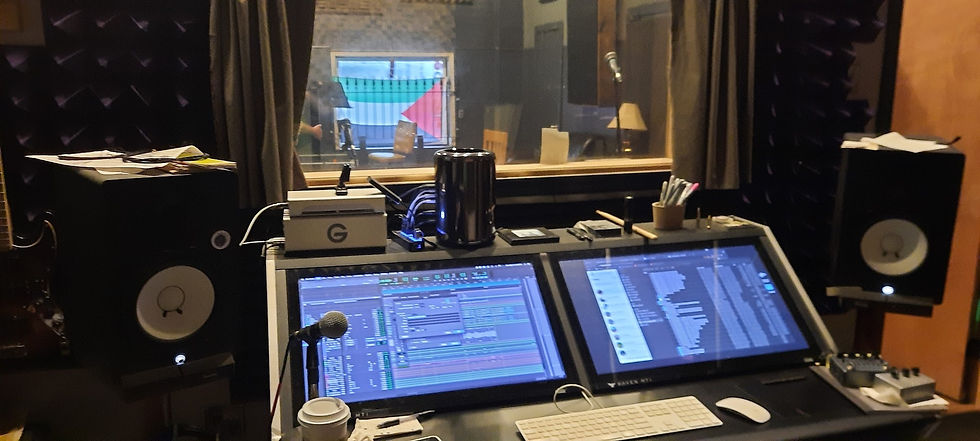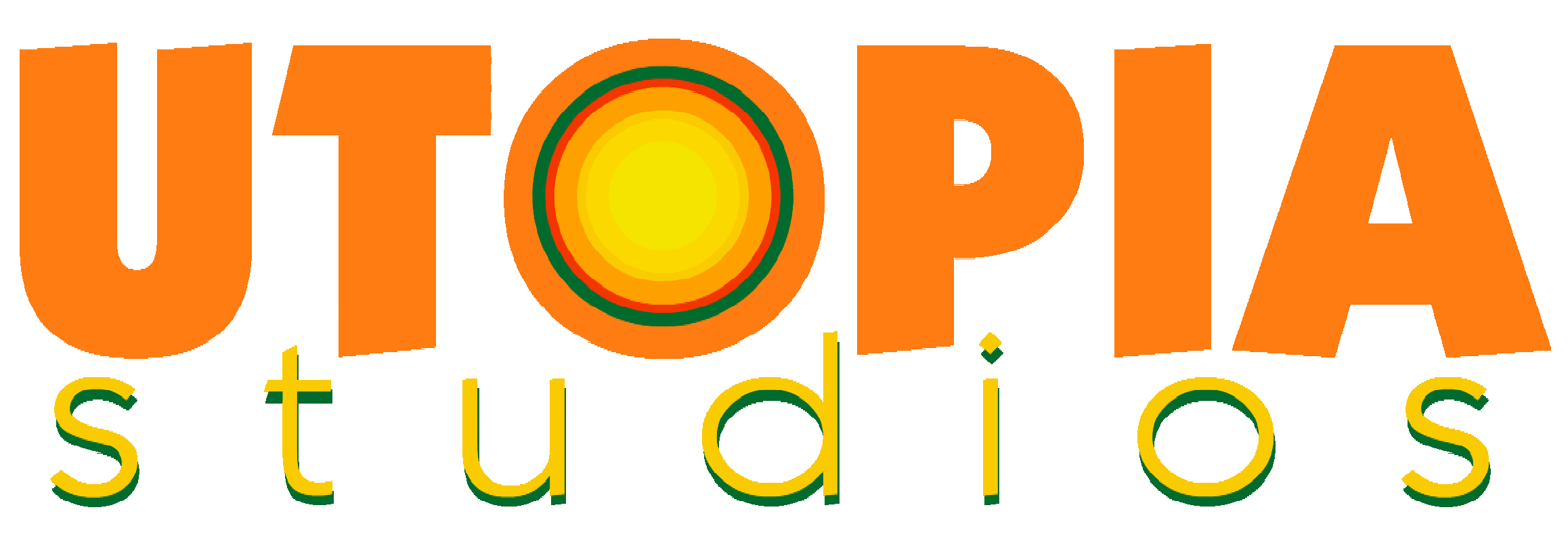
Studio Zero Recording
WHAT TO EXPECT:
What to Expect When Making a Record:
There are essentially 5 phases to record making: Setup / Tracking / Editing / Mixing / Mastering.
SETUP - Setup falls under the umbrella of PRE-PRODUCTION. This is the most important part of the record making process. “where the rubber meets the road”. This part can seem tedious, especially to band members who just want to get in there and ROCK. Also, setup can be frustrating to someone who is watching the clock, trying not to spend too much money, BUT as they say “garbage in - garbage out”. You gotta get this part right, or mixing can be a nightmare. The best thing you can do is BE PREPARED! What does that mean?
Basically, it means not bringing problems into the studio. Problems take time to solve. Eliminate the potential for time wasting by making sure ALL of your gear is functioning optimally. Let us know what gear you are bringing, so we can be prepared as well.
DRUMS: The drum-set is usually the most important instrument in a mix. Even if it’s not the most important part of your band. The drum-set can literally make or break a recording. A good sounding drum-set coupled with a crappy bass, guitar, keys, etc. is passible; the reverse is not. If the drums suck, the record sucks, PERIOD! We’d rather have nothing suck, but the drums gotta rock. Also, drums require more mics, and more setup time. What to do: Most importantly - CHANGE YOUR HEADS! Don’t skimp on this, they don’t have to be $$$, but this is the sound of the kit. Fresh heads mean a better recording, plus you get NEW HEADS! Worn out heads means you spend your money on ME trying to salvage your tracks, instead. Plus - NO NEW HEADS. Frustrating, and cost-inefficient. Buy, rent or borrow good cymbals. Make sure all stands, lugs, pedals are solid, working, oiled, not broken, and not squeaking or rattling. WD-40!
GUITAR and BASS: Get your instruments professionally set up. I know how to do this, but a professional can do it much better. (Either way the clock is ticking). New strings before tracking, and have an extra pack of your favorite gauge in case you break any. Fix any amp or input jack problems. Get your sound together. Don’t make us guess what kind of sound you want. Buy, rent or borrow a good amp - Doesn’t need to be big or even loud. Also, generally GTR amps don’t need quite as much gain when recording, so get used to reducing your input gain and playing a little harder and tighter (that’s where the tone lives). We also have a small variety of virtual amps from blues to rock to metal, that sound very nice and require no mic’ing.
KEYS: Make sure all your gear works! And like the other instruments, let the engineer know what you are bringing, so we know how best to capture your sounds (Audio, MIDI, or both). We also have an upright piano.
VOCALS: In most cases the vocals will be a scratch recording meant only to keep the band from losing its place. Scratch vocals will be replaced anyway, so don’t stop the band if the singer doesn’t nail the part during basic tracking. When it’s time to record your vocals be ready to sing your parts multiple times, and take care of your voice. Drink plenty of water and avoid sugary drinks. Have your lyrics ready. Have your lyrics ready.
TRACKING
This is the part where you play your songs. ;)
GENERAL PREPAREDNESS: Just like your gear, your songs should be in top shape. Have all songs prepared to the best of your ability; lyrics printed, beats per minutes or BPM’s (if applicable, i.e. click track). Make sure the parts work together (i.e. no note clashing, unless it’s intentional). And of course, PRACTICE, PRACTICE, PRACTICE! Focus on keeping the tempo steady, and the rhythm section tight. We can edit your performance to be tighter, but you know, the clock is ticking. Do whatever you have to do to get yourselves in the right state of mind to make music. Clear your schedule, take a nap, eat a pizza, alcohol, drugs, whatever -- just don’t bring anything illegal into the studio, and keep it under control. If you are trashed, your recording will suck. Trust us, we have experience with this.
LIVE TRACKING: Depending on your group and your goal, there are a few ways to record your band. My favorite method is live tracking. If your group is well rehearsed and very tight, you can just set up in the live room and play like you would at practice or at a concert. In this circumstance I’ll let the mic-bleed happen and record the whole band and the room all together, and skip the whole headphones thing. The advantage is a naturally blended sound between the various instruments, and shorter setup time. The disadvantage is that punch-ins are not an option, due to the mic bleed.
LIVE TRACKING WITH SEPARATION: In this scenario, we’ll set up similarly to the live option with a few differences: we will isolate the instruments as much as possible so that edits and punch-ins can be done without the risk of phase artifacts (you don’t want those). This method is more common. It involves setting up headphone mixes, which will add some time to your setup. This can be done with or without a click track.
PLAYING TO A GUIDE TRACK: A guide track is a Pro Tools (or other DAW) file with pre-determined sections and key/tempo changes already programmed into it, that the band can play along with while recording (usually one instrument at a time). These are useful if you’re looking for that “perfect sound” with quantized parts, and very radio friendly steadiness. I personally prefer a tight band with a natural ebb and flow, but it depends a lot on the band. Usually a click track is good enough.
EDITING - The dirty little secret that everyone knows (not a secret).
* Even if your band is very tight you’ll still have a few spots where not everyone hits at the same time. I can fix this pretty easily.
* If your band is sloppy (or even drunk, it happens) I can still fix it (probably), but it’s much harder to do - the clock is ticking.
* If you play to a guide or click track, I can use the timing grid and the editing becomes much easier.
-
Also there’s pitch correction. I can use Autotune for the effect usually associated with it, or I can use Melodyne to make the vocals sound in pitch, and make harmonies sound tight and professional sounding. It takes longer, but it can be done in a way that sounds natural, and doesn’t sound affected.
MIXING - Mixing is meant to achieve balance, primarily. Stereo balance, volume balance, EQ balance, etc.. A good mix is said to sound “tall, deep and wide”, or “3 dimensional". There’s also sweetening, which is secondary. Sweetening can mean many things, like adding pads, or other instruments, delays, etc.. Many of these techniques like phone EQ, Hook echo, backwards reverb, and vocal tuning are often grossly overused and can really cheese up a recording. They can also be used sparingly and sometimes even tastefully.
Mixes tend to be a bit quieter and maybe a bit less exciting than what’s on the radio. That’s because it hasn’t gone through the final phase…
MASTERING:
Mastering is the final step in the process. This is where the mix is taken out of the studio and finalized in a way that works on as many formats as possible, hopefully all formats.
Back in the old vinyl days, certain things would make the record unplayable e.g. too much bass could make the needle jump out of the groove. These and other issues were corrected and a MASTER would be created, from which copies could be made. Sometimes the mastering engineer would also be in charge of song spacing, and other nuances, etc..
Now, it’s considered to be the “icing on the cake”, making sure the mix has the EQ, punch and loudness that will allow it to sit correctly with the other music out in the “real world”.
Traditionally, mastering is done by another engineer with a “fresh set of ears”, at a dedicated mastering studio. However, mastering is one of our services.
UTOPIA uses UAD2, Slate and Ozone 9 Software for mastering.
FOR BEST RESULTS:
* Be prepared throughout
* Be patient during setup
* Be focused and relaxed during tracking and overdubs
* Be clear on likes/dislikes during mixing
* Provide reference material, i.e. examples of other music that you think sounds good (must be comparable instrumentally and stylistically). If there is a very specific sound you want to achieve, it’s important to address this before the day of your tracking session.
RATES:
Tracking, Mixing, Mastering: $50 per hour
Private Room holders get a 20% discount ($40 per hour).
Booking Policies: We do not offer same day recording services--all sessions must be booked at least 24 hours ahead with a 50% deposit paid. Remainder of session fee can be settled on completion. The engineers are not scheduled until a deposit is received.
Cancellations: Reschedule anytime with 24+ hours notice. Same day cancellations will forfeit deposit. We do not offer refunds, but we do offer credit for another date of service as long as notice is given at least a day ahead.

























